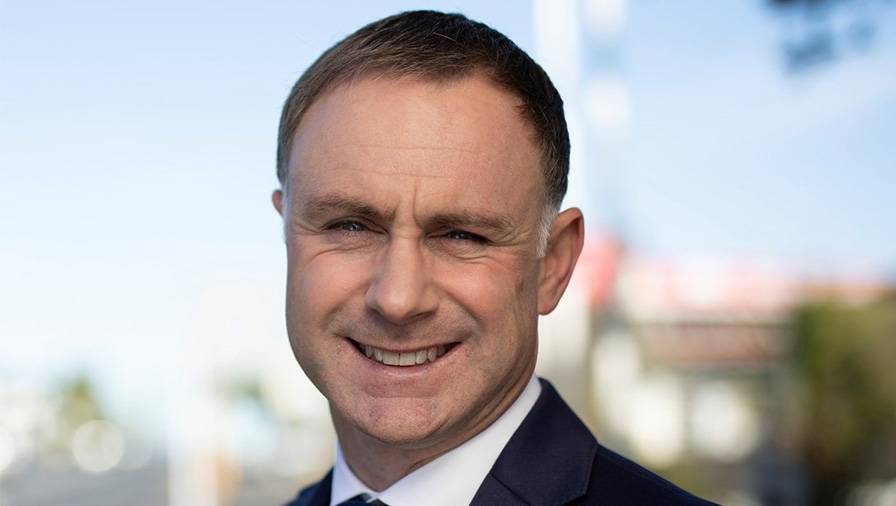Green controversy, climate strategy, Nato talks, rate cuts
ANALYSIS: Greens face dilemma of whether to use waka jumping legislation to dump MP Darleen Tana.
WATCH: NBR political editor Brent Edwards speaks with Grant Walker.
ANALYSIS: Greens face dilemma of whether to use waka jumping legislation to dump MP Darleen Tana.
WATCH: NBR political editor Brent Edwards speaks with Grant Walker.
After months of waiting, the Green Party finally received the report on MP Darleen Tana’s involvement in alleged migrant exploitation by her husband’s firm.
Once they had received the report, it did not take Green MPs long to react. They dumped her from their caucus and asked her to resign from Parliament.
But now things are in limbo, with Tana claiming the report is wrong and that she has not been given a fair hearing. Green Party co-leader Chlöe Swarbrick is unequivocal though, saying Tana has misled both her and fellow co-leader Marama Davidson.
Soon after Swarbrick held a news conference on Monday – flanked by fellow Green MPs Ricardo Menendez March and Teanau Tuiono – an executive summary of barrister Rachel Burt’s report into the matter was leaked to news media, with Radio New Zealand reporting that it found Tana “likely” knew about allegations of worker exploitation at her husband’s business. It was also critical of the evidence that Tana and her husband Christian Hoff-Neilsen gave, describing it as “lengthy and often unclear”.
The Greens have at least got the report out of the way. But what do they do if Tana – who has remained largely silent – refuses to quit Parliament? Will the party invoke the waka jumping legislation it so vehemently opposed to get rid of her?
Labour Party leader Chris Hipkins thinks the Green Party should use the legislation to remove Tana from Parliament, saying the main concern about the legislation was that it would be used to get rid of MPs over political disagreements. This is not that.
Swarbrick has not ruled out using the waka jumping legislation – although the Greens have not yet formally discussed that option – but it would smack of hypocrisy if the party was to do so. It must weigh up any political damage it might suffer as a result of Tana remaining in Parliament against accusations it would face of political hypocrisy.

Green Party co-leader Chlöe Swarbrick.
It has been a difficult first seven months back in Opposition. The Green Party has been hit by controversies ranging from Golriz Ghahraman’s shoplifting – which led to her resignation – intimidating behaviour from Julie Anne Genter in Parliament, and the Tana investigation.
But, as Swarbrick said, that pales into insignificance against the loss the party suffered when Fa’anānā Efeso Collins died suddenly in February.
Former co-leader James Shaw retired from politics, and the Greens are now praying for the health of Davidson, who is undergoing treatment for breast cancer.
Meanwhile, as the Greens continue to be distracted by the Tana controversy, Climate Change Minister Simon Watts released the Government’s climate change strategy. It was just three pages long and included very little detail.
It is based around five core pillars:

Climate Change Minister Simon Watts.
Both Greenpeace and the Labour Party are damning in their criticism, with Labour’s climate change spokesperson Megan Woods saying the Government is simply paying lip service to meeting its climate targets.
“If Simon Watts believes his plan is as he has described – comprehensive or ambitious – then New Zealand is in real trouble. This three-page document is flimsy and backward looking,” Woods says.
She says more than seven months into the Government’s term and there is still no concrete plan to reduce emissions and meet New Zealand’s climate targets.
But Watts points out the Government is still working on its emissions reduction plan for the 2026-30 period.
Consultation will begin on that in the coming months. Then there will be scrutiny of just what the Government plans to do to reduce emissions.
In Washington DC, Prime Minister Christopher Luxon is attending the Nato leaders’ summit, amid ongoing concerns about Russia’s invasion of Ukraine and China’s increasing belligerence.
Here in New Zealand, Stuff has run a series on what it describes as Chinese interference in New Zealand’s affairs, its latest story focusing on sacked probation officer Xu Shan, who searched through 43 offenders’ records without authorisation. Stuff understood all the offenders had Chinese names. Corrections sacked Xu but did not look at any potential national security implications of what he did.
Luxon told reporters in Washington intelligence agencies would investigate concerns about whether the Corrections information was being used for foreign interference.
“On foreign interference, it’s something we are very, very hyper-attuned to. You’ve seen me publicly talk about the issue we had with China, with a cyber attack on our parliamentary systems,” Stuff reported him saying.
But, while Luxon is talking tough about China in Washington, he will also be aware from a commercial perspective just how important China is to New Zealand. If the Government wants to achieve its goal of doubling the value of exports in 10 years, unduly antagonising China won’t help.

Prime Minister Christopher Luxon.
When the Prime Minister returns home at the end of the week, it will be to expectations that interest rates will likely start to be cut at the end of the year, after the Reserve Bank said it expected inflation to fall back within its 1-3% target band in the second half of the year.
While it kept the official cash rate at 5.5% this week, most economists expect it to start cutting rates probably in November. That is a more positive picture for those with mortgages than earlier in the year when the Reserve Bank’s language suggested they might have to wait until later next year to get some mortgage relief.
It will buoy the Government too as it argues that it is doing its bit to bring the cost of living under control to ease the pressure on struggling households.
Brent Edwards is NBR’s political editor.
Sign up to get the latest stories and insights delivered to your inbox – free, every day.